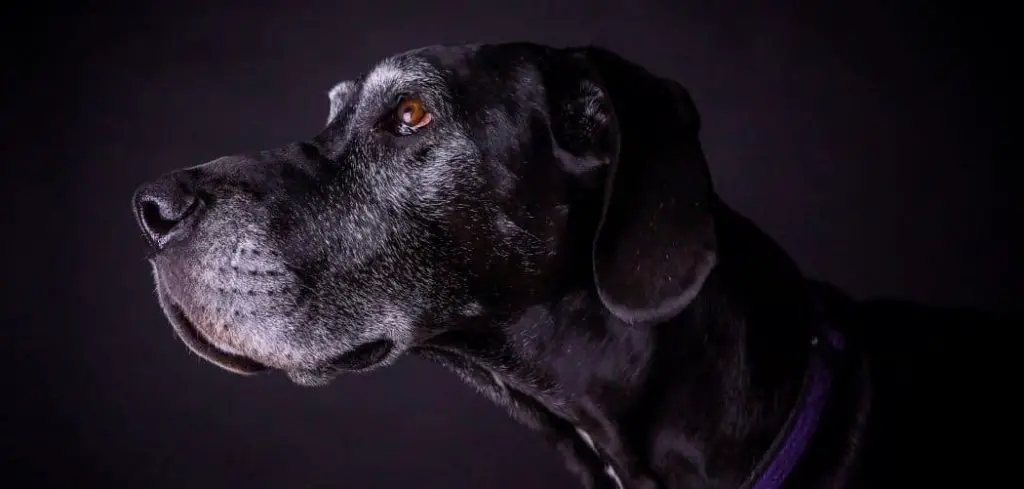Occasional hiccups and coughs are normal and should not be a cause for concern. A dog coughing while having hiccups can be quite concerning.
When these two symptoms occur at the same time, should you panic? What do dog hiccups and coughing mean?
We go into details on what it means when dog hiccups and coughing occur, the causes, complications and when to seek help.
Here's Why Dog Hiccups and Coughing Happens
Dog hiccups and coughing is a sign that a dog has a respiratory disease or condition which causes coughing and also triggers hiccups. This results in dog hiccups and coughing.
Any mechanism or condition that irritates or damages parts of the reflex nuclei (neural pathway the controls reflexes), the autonomic system, central nervous system, the phrenic nerves, and vagus nerves, can trigger hiccups.
The vagus nerve is a nerve that is responsible for the cough reflex and when it is irritated it causes coughing as a reflex.
In turn, this results in the irritation of the phrenic nerves which control the hiccup reflex, leading to the production of hiccups.

Causes of Dog Coughing
Coughing in dogs can be caused by many different factors. The most common causes of coughing in dogs are due to:
Respiratory infections caused by viruses, fungi, or bacteria to the upper respiratory tract, airways, and lungs lead to coughing.
Infections such as kennel cough or pneumonia are common respiratory infections in dogs that result in coughing.
Collapsed trachea occurs when the windpipe flattens leaving a small passage of air into the lungs. It is a result of the tracheal cartilage collapsing. The restricted airflow causes a dog to cough, have respiratory distress, and gag while eating or drinking.
Tracheal collapse is common in smaller dog breeds.
Heart disease is common in older dogs. It can result in coughing and rapid breathing. If your dog has already been diagnosed with heart disease, when the condition worsens they may also cough when lying down, resting, or sleeping.
Bronchitis is the persistent inflammation of the lower respiratory tract that leads to swelling of the airway, constricting airflow. The inflammation also leads to the production of mucus which further narrows the airways.
Dogs with chronic bronchitis have a hacking cough that worsens when they exercise or are overexcited.
Scarring of the airways can occur which makes the bronchi membrane weaken, which leads to coughing and/or wheezing.
Bronchitis is caused by the inhalation of irritants such as cigarette smoke.
Foreign objects that can be ingested by a dog can obstruct their throat, which causes them to gag and cough in an attempt to remove the object.
Foreign objects including broken toys, sticks, bones, or balls can quite easily block a dog’s throat.
Reverse sneezing in a dog can also produce a cough-like sound. Reverse sneezing occurs when the nasal passages are irritated.
Other conditions that are less common but cause coughing in a dog include canine influenza, laryngeal (windpipe) paralysis, heartworm disease, distemper, and lung cancer.
Complications
Dog hiccups and coughing can worsen and become serious which can turn out to be life-threatening.
A dog’s health can deteriorate when the underlying condition is not treated.
Therefore it is important to seek medical attention when dog hiccups always present with coughing.
Related: Do kennel coughs sound like hiccups?
When to Seek Help
In most cases occasional coughing from a dog is common and usually, there is no need for concern, however, frequent coughs require medical attention.
Seek medical attention when your dog’s cough lasts for more than a week and when there are other symptoms of illness or your dog also has other preexisting health problems.
This includes dog hiccups and coughing.
Normal dog hiccups are harmless, lasting only for 10-15 minutes, and do not appear with other signs of illness.
However, when they prolong more than normal and also show up with symptoms of illness such as vomiting, hard swallowing, weakness, drooling, wheezing, or coughing, it means there is an underlying health condition.
The veterinarian will ask you different questions to assess your dog’s condition and presentation of the symptoms which will help in the diagnosis of the cause of coughing. Things to note are:
- How your dog was coughing (sound of the cough) whether the cough was
– a dry hacking sound
– a productive/moist cough
- How long the cough has been experienced (duration of the cough)
- The progression of the cough ( if it has been worsening)
You can also record your dog when they are having coughs and hiccups to show your veterinarian what your dog was experiencing.
Coughs are treatable and the treatment provided will depend on the underlying cause. Dog hiccups and coughing can be stopped by addressing the underlying cause triggering the two symptoms.
Treatment of infections, bronchitis, tracheal collapse, and heart disease is through the administration of medication. Surgery may be required in some cases to correct tracheal collapse.
Related: Why does my Great Dane get hiccups?
The Bottom Line
Dog hiccups and coughing are not normal. When these two symptoms show up together it means that a dog’s respiratory system is compromised by an illness.
This requires medical attention because it can get worse which can be life-threatening to your dog.
Always contact your veterinarian when dog hiccups and coughing show up alongside each other.
Sources:
A case report of Vagus nerve stimulation for intractable hiccups
